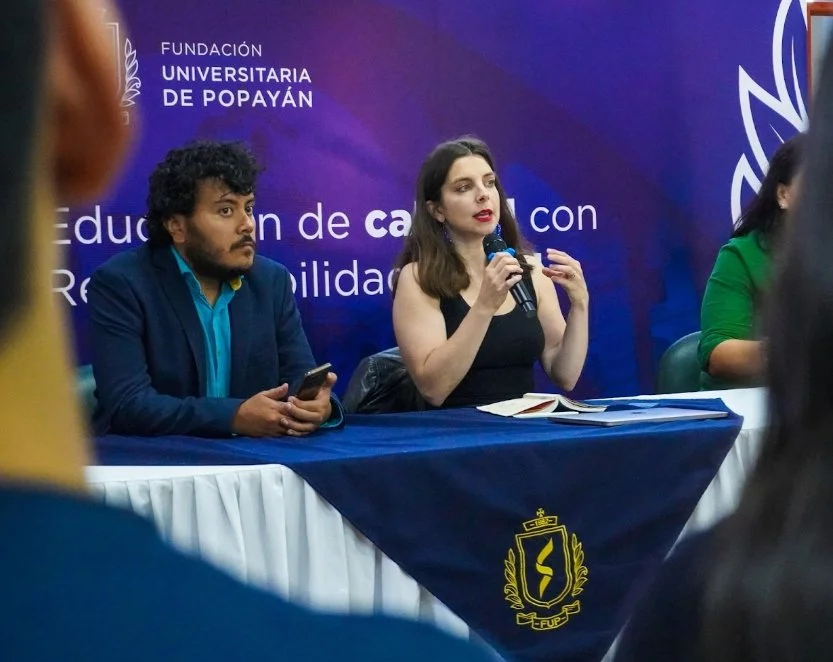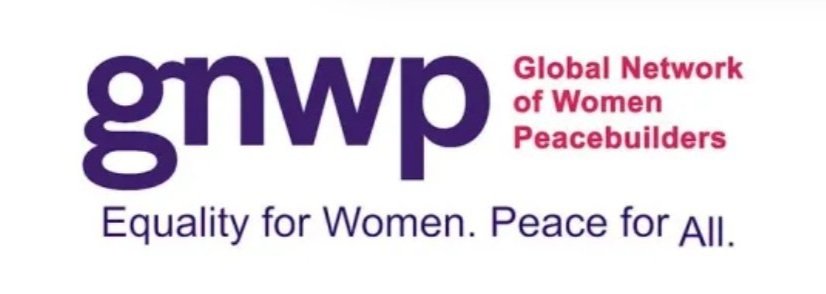Agnieszka
Fal-Dutra Santos
Pronouns: She/Her
Organisation: Global Network of Women Peacebuilders (GNWP)
Country of origin: Poland
Profile
Agnieszka Fal Dutra Santos, born in Poland, is fortunate to say she did not grow up in a conflict-affected area. However, she encountered conflict as a teenager volunteering with Chechnyan refugees, particularly women and children who fled, she said, leaving the men behind to fight. This experience proved pivotal, later leading her to join the Global Network of Women Peacebuilders (GNWP). She believes that inclusivity, with a special focus on women and youth, is one of the most important pillars of peace.
She said her education played a significant role in shaping her career. She studied Politics and Economics, later obtaining a Master’s degree in International Relations and a PhD in Women’s Participation in the Implementation of Peace Agreements. Through her work, Agnieszka considers herself a peacebuilder and is motivated to continue ‘as long as there is still a need’. Although the number of challenges ahead may seem discouraging, connecting with a global community keeps her hopeful.
Story
Agnieszka Fal Dutra Santos started her peacebuilding career with short-term contracts at organisations such as the International Committee of the Red Cross and GNWP. She remained at GNWP and has been a permanent colleague since 2018. Through her work she discovered her passion for addressing root causes of issues in order to build sustainable and inclusive peace. She emphasises the importance of including in peace processes women, young people and marginalised groups, especially young women. At GNWP, she enjoys being part of a global network, which keeps her motivated—though the organisation’s progress is often more visible on local and small-scale levels.
The GWNP agenda extends to both the local and the global. Globally, they focus on the implementation of frameworks related to women and youth. They collaborate with national governments, authorities, civil society and other partners. On a local level, they teach women skills based on the needs of their communities, focusing on capacity building. They also train journalists to report in a more gender-sensitive manner. Additionally, GNWP empowers its partners to speak for themselves at Security Council briefings and other UN meetings. Despite being a global network with national specialists, GNWP operates with a single office in New York to avoid the high costs of maintaining offices in resource-limited countries.
Agnieszka recognises that GNWP is fortunate, as it does not face serious issues with funding or credibility, though she acknowledges the struggles faced by other youth and women peacebuilders. While she says she is thankful for their donors, she admits that the resources are still far from sufficient. She also notes the difficulty for new organisations to establish networks and capacity to apply for funding. Although GNWP staff are paid, the reality is that many in the peacebuilding sector work more than they are compensated for, with much of the work being voluntary. To avoid burnout, Agnieszka advises new peacebuilders to set clear boundaries early on.
Agnieszka says the most important quality for anyone entering peacebuilding is the right attitude. ‘You can learn skills, although it takes time; you can learn knowledge, which takes much less time, but it’s much harder to change attitude.’ She said the right attitude includes being open, respectful, flexible, cooperative and setting clear boundaries. She emphasises the importance of a network or community of like-minded peacebuilders, as this not only forms a key part of her identity but also keeps her motivated and mentally healthy during hard times.


